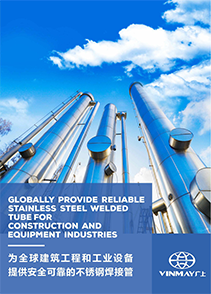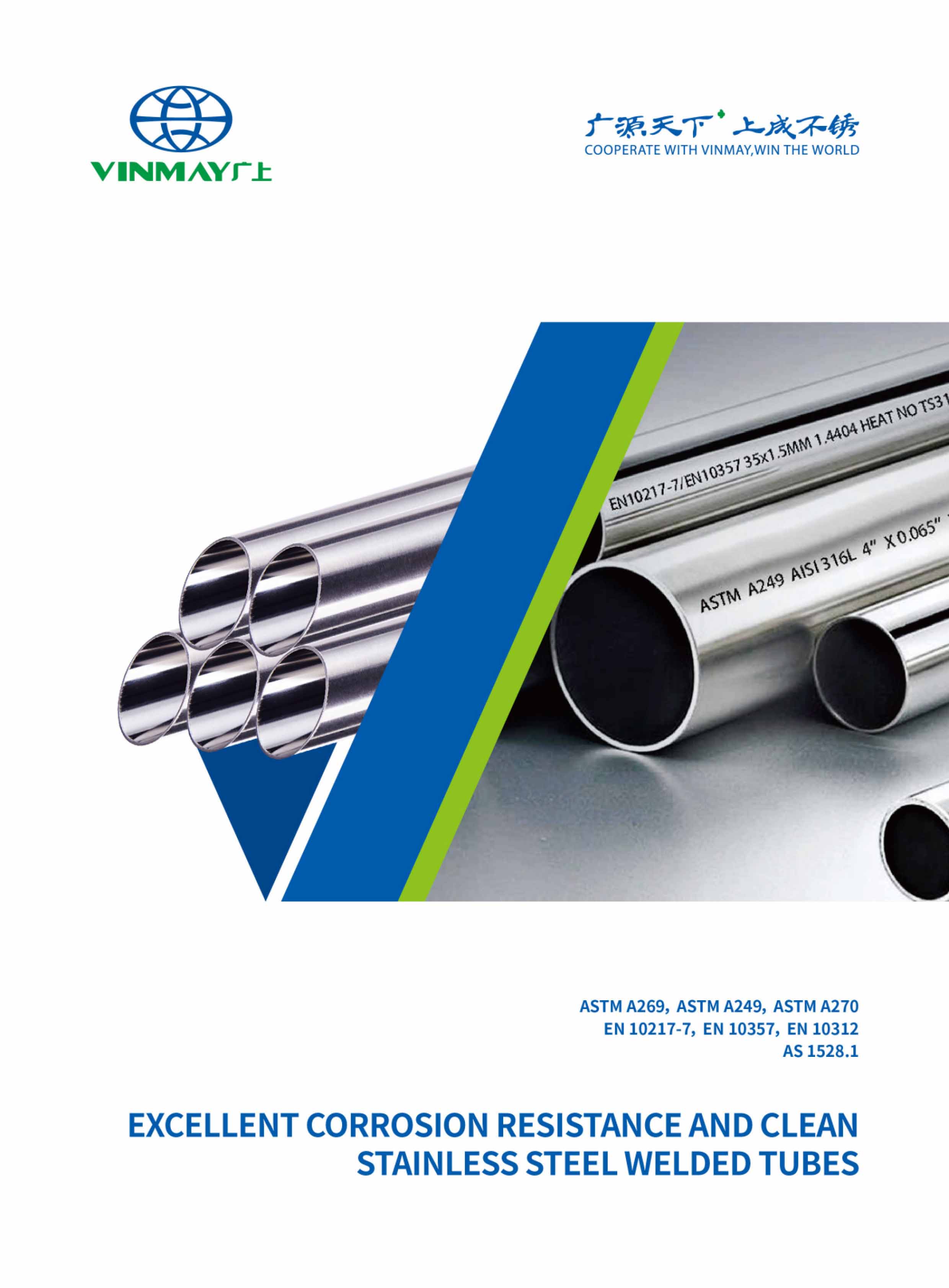The use of sanitary stainless steel pipes spans across various industries, showcasing its versatility and reliability. From ensuring the highest hygiene standards in the food and beverage sector to meeting stringent requirements in pharmaceutical manufacturing, these pipes are essential in critical processes.
However, the applications extend far beyond these sectors, delving into areas such as automotive, water treatment plants, chemical processing, biotechnology, and dairy industries. The adaptability and durability of sanitary stainless steel pipes make them indispensable in a multitude of applications, each with its unique set of requirements and challenges.
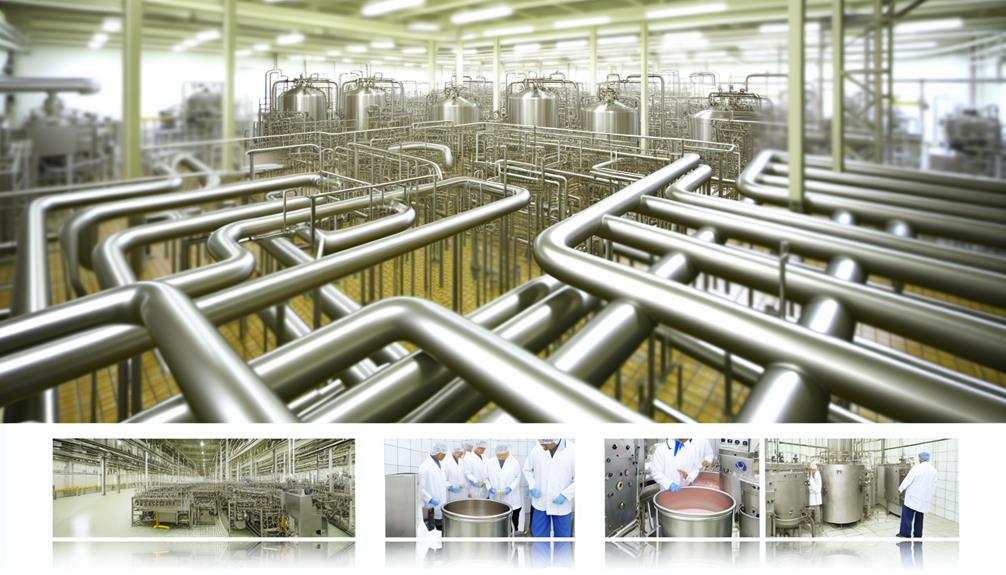
Demonstrating exceptional corrosion resistance, sanitary stainless steel pipes play a pivotal role in meeting the stringent hygienic requirements of the food and beverage industry. These pipes are crucial in ensuring the integrity of the supply chain, and safeguarding the quality and safety of consumables. In recent years, the food and beverage sector has witnessed significant packaging industry advancements, with a growing focus on sustainability and efficiency. Sanitary stainless steel pipes align perfectly with these trends, offering durability and cleanliness essential for maintaining product quality during transportation and storage.
Moreover, supply chain innovations have led to the development of more streamlined processes in the food and beverage industry. Sanitary stainless steel pipes contribute to this by providing a reliable and hygienic means of transporting liquids and gases within facilities. Their smooth, non-porous surfaces prevent bacterial growth and contamination, ensuring that products remain safe for consumption. As the industry continues to prioritize quality control and efficiency, the role of sanitary stainless steel pipes in facilitating these objectives cannot be understated.
Related Article: Stainless Steel Pipes for Food Industry
Pharmaceutical manufacturing utilizes sanitary stainless steel pipes due to stringent sterile process requirements, ensuring the purity of drugs and medications.
The corrosion resistance benefits of stainless steel in these pipes are crucial for maintaining the integrity of pharmaceutical products and preventing contamination.
Additionally, the hygienic design standards of sanitary stainless steel pipes play a key role in meeting regulatory requirements and ensuring the safety of pharmaceutical manufacturing processes.
Ensuring the highest level of cleanliness and sterility is paramount in pharmaceutical manufacturing processes that utilize sanitary stainless steel pipes.
Maintaining sterile process requirements in pharmaceutical manufacturing not only ensures product quality but also safeguards consumer health by preventing contamination and ensuring efficacy.
Maintaining the integrity of pharmaceutical manufacturing processes relies heavily on the corrosion resistance benefits provided by sanitary stainless steel pipes. These pipes ensure durability and reliability in critical applications. In industrial plumbing within pharmaceutical facilities, they offer a robust solution to withstand the harsh chemicals and cleaning agents used in the production process, preventing contamination risks.
The corrosion resistance of sanitary stainless steel pipes also makes them ideal for marine equipment in pharmaceutical manufacturing, where exposure to saltwater and other corrosive elements is common. By utilizing these corrosion-resistant pipes, pharmaceutical manufacturers can maintain hygienic conditions, meet stringent regulatory requirements, and ensure the quality and safety of their products without compromising on durability or reliability.
Read More: Understanding Stainless Steel Tube Corrosion and How to Prevent It
How do hygienic design standards impact the quality and safety of pharmaceutical manufacturing processes?
In pharmaceutical manufacturing, the use of sanitary stainless steel pipes that adhere to specific hygienic design standards is crucial. Here are four key considerations:
Sanitary stainless steel pipes find essential application in the automotive sector due to their exceptional corrosion resistance, ensuring longevity and durability for various car parts. This quality is crucial in vehicles exposed to harsh environmental conditions and chemicals, enhancing the overall reliability and performance of automobiles.
The utilization of these pipes contributes significantly to maintaining the structural integrity and functionality of automotive systems.
Amidst the rigorous demands of the automotive sector, sanitary stainless steel pipe showcases exceptional corrosion resistance in vehicles. This attribute is crucial for various applications in the automotive industry due to factors such as vehicle exhaust and overall durability.
Here are four key reasons why sanitary stainless steel pipes excel in corrosion resistance within vehicles:
The utilization of sanitary stainless steel pipes in the automotive sector extends to ensuring the durability of various car parts. Stainless steel's exceptional strength and corrosion resistance make it an ideal material for automotive applications, contributing significantly to automotive durability. Additionally, the use of stainless steel helps prevent rust formation, crucial for maintaining the longevity of car components. The table below highlights some common car parts where stainless steel pipes enhance durability and aid in rust prevention:
| Car Part | Utilization of Stainless Steel Pipes | Benefits |
|---|---|---|
| Exhaust System | Exhaust pipes made from stainless steel ensure longevity and prevent rust. | Increased durability and corrosion resistance. |
| Fuel Lines | Stainless steel fuel lines resist corrosion, enhancing safety and reliability. | Improved longevity and decreased risk of leaks. |
| Chassis Components | Various chassis components utilize stainless steel for strength and durability. | Enhanced structural integrity and resistance to rust. |
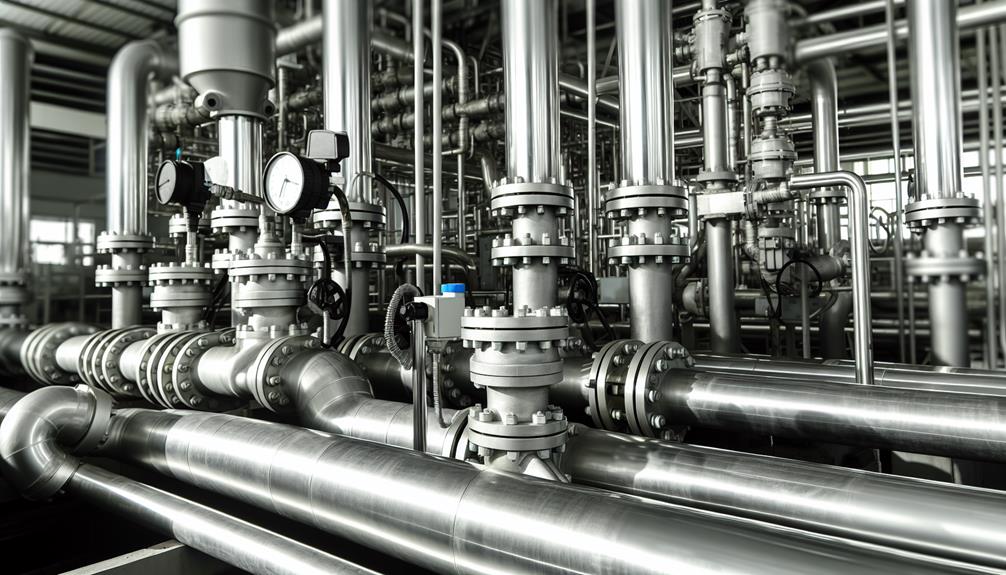
Water treatment plant installations require precise planning and implementation to ensure efficient operation and compliance with sanitation standards. When utilizing sanitary stainless steel pipes in water treatment plants, several key considerations come into play:
Read More: Stainless Steel Pipe for Water
In the context of industrial applications, the integration of sanitary stainless steel pipes extends beyond water treatment plant installations to encompass the specialized requirements of the Chemical Processing Industry. This sector demands precision, reliability, and efficiency in its processes to ensure the safety of operations and the quality of products. Sanitary stainless steel pipes play a crucial role in meeting these requirements by providing corrosion resistance, easy cleaning, and maintaining the purity of the transported substances.
When looking at the Chemical Processing Industry, two key aspects stand out: industrial automation integration and process efficiency improvement. By incorporating sanitary stainless steel pipes into automated systems, manufacturers can enhance control over their operations, leading to higher productivity and consistency in product quality. Moreover, the use of these pipes promotes sustainable production practices and helps in reducing the environmental impact of chemical processing activities.
| Benefits | Industrial Automation Integration | Process Efficiency Improvement |
|---|---|---|
| Corrosion resistance | Ensures seamless integration | Enhances productivity |
| Easy cleaning and maintenance | Facilitates automated control | Ensures consistent product quality |
| Purity of transported substances | Improves operational efficiency | Reduces downtime |
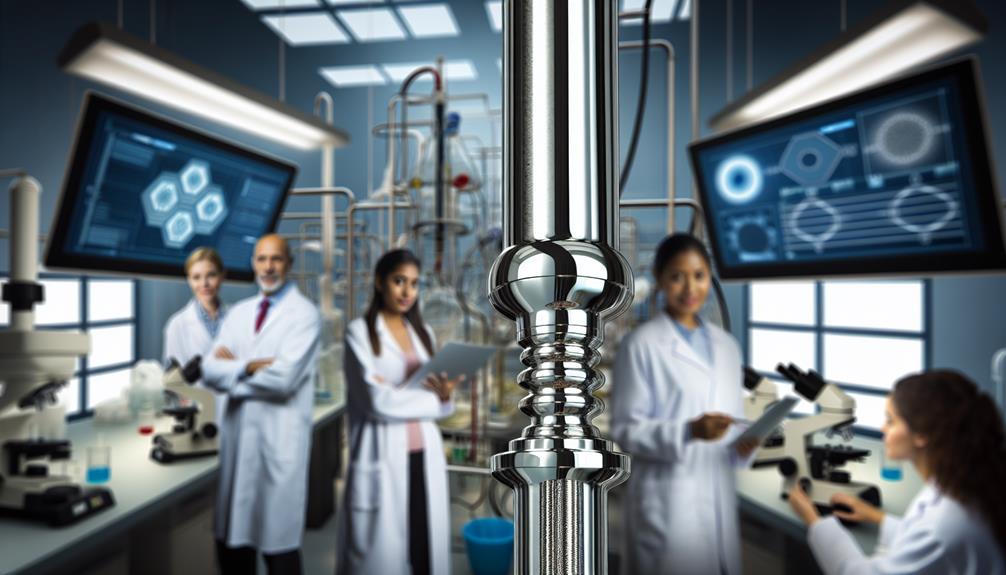
Within the realm of biotechnology and research applications, the utilization of sanitary stainless steel pipes is paramount for ensuring the integrity and purity of sensitive biological compounds and samples. These pipes play a crucial role in maintaining a sterile environment necessary for various bioprocessing advancements and laboratory equipment requirements.
Four key reasons why sanitary stainless steel pipes are indispensable in biotechnology and research applications include:
Amidst the demands of the dairy industry, the integration of sanitary stainless steel pipes stands as a critical component in maintaining the hygiene and quality standards essential for dairy product processing. Dairy equipment, from milk storage tanks to processing machinery, relies on the durability and cleanliness provided by sanitary stainless steel piping systems. These pipes offer a smooth surface that is easy to clean and resistant to corrosion, ensuring the purity of dairy products and the longevity of the equipment.
In the dairy industry, proper maintenance of sanitary stainless steel pipes is paramount. Regular inspections and cleaning protocols help prevent contamination and uphold the high standards of hygiene required in dairy processing facilities. Sanitary welding techniques play a crucial role in ensuring the integrity of the piping system, minimizing the risk of leaks or bacterial growth. By employing skilled welders and adhering to strict welding procedures, dairy manufacturers can maintain a safe and sanitary environment for their products.
Outdoor durability is crucial for sanitary stainless steel pipes exposed to harsh conditions. Their exceptional corrosion resistance ensures longevity in diverse environments. Proper maintenance and protection can further enhance their performance and extend their lifespan.
When using sanitary stainless steel pipes in high-pressure systems, considerations include corrosion resistance, pressure ratings, proper installation techniques, and material compatibility. Attention to these factors ensures optimal performance, safety, and system longevity.
In assessing cost comparison, sanitary stainless steel pipes offer unparalleled durability advantages over other materials, ensuring long-term cost-effectiveness. Their robust nature and resistance to corrosion make them a superior investment for industries prioritizing reliability and longevity.
Recommended: Different Pipe Materials
To ensure the longevity of sanitary stainless steel pipes and prevent contamination, best practices include regular cleaning using appropriate techniques, such as passivation, and implementing corrosion prevention methods like maintaining proper pH levels and avoiding harsh chemicals.
Regulatory requirements and industry standards dictate the utilization of sanitary stainless steel pipes in various sectors. Compliance with certifications such as ISO 9001 ensures quality and safety, while adherence to specific guidelines guarantees optimal performance in designated applications.
In conclusion, the diverse applications of sanitary stainless steel pipe in industries such as:
Showcase its versatility, durability, and hygienic properties.
Its seamless integration into various sectors speaks to its adaptability and reliability in meeting stringent industry standards.
The widespread use of sanitary stainless steel pipe across different industries underscores its importance as a vital component in ensuring efficiency and safety in a variety of processes.
Read More: Applications of Sanitary Stainless Steel Pipe in Various Industries